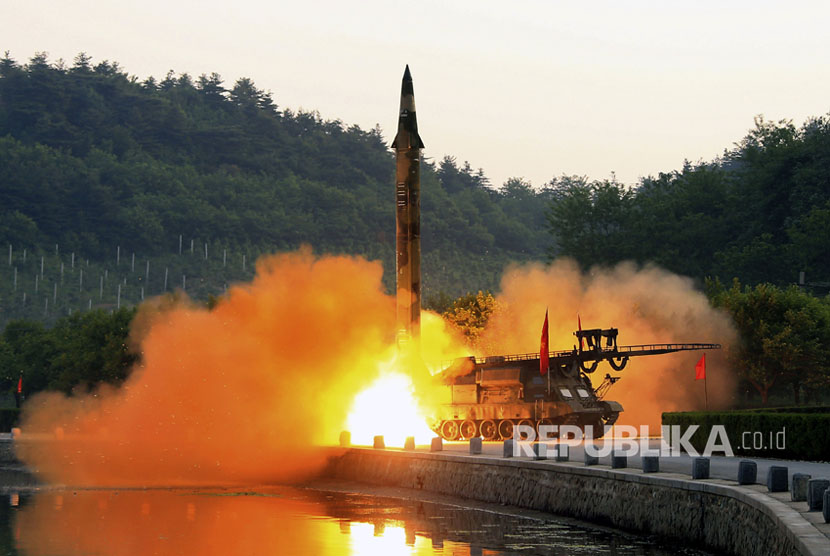REPUBLIKA.CO.ID, UNITED NATIONS -- The United States wants the United Nations Security Council to impose an oil embargo on North Korea, ban the country's exports of textiles and the hiring of North Korean laborers abroad and subject leader Kim Jong Un to an asset freeze and travel ban, according to a draft resolution seen by Reuters on Wednesday.
U.S. Ambassador to the United Nations Nikki Haley has said she wants the 15-member council to vote on the draft resolution on Monday. However, Russia's U.N. Ambassador Vassily Nebenzia has said this may be "a little premature."
It was not immediately clear if the draft resolution had the support of North Korean China. A resolution needs nine votes in favor and no vetoes by the United States, Britain, France, Russia or China to be adopted by the 15-member council.
China supplies most of North Korea's crude. According to South Korean data, Beijing supplies roughly 500,000 tonnes of crude oil annually. It also exports 200,000 tonnes of oil products, according to U.N. data.
The draft resolution would also ban exports to North Korea of condensate, refined petroleum products, and natural gas liquids.
The Security Council last month imposed new sanctions over North Korea's two long-range missile launches in July. The Aug. 5 resolution aimed to slash by a third Pyongyang's $3 billion annual export revenue by banning exports of coal, iron, lead and seafood.
That resolution capped the number of North Koreans working abroad at the current level. The new draft resolution would impose a complete ban on the hiring and payment of North Korean laborers abroad.
Some diplomats estimate that between 60,000 and 100,000 North Koreans work abroad. A U.N. human rights investigator said in 2015 that North Korea was forcing more than 50,000 people to work abroad, mainly in Russia and China, earning between $1.2 billion and $2.3 billion a year.
The draft resolution would ban textiles, which were North Korea's second-biggest export after coal and other minerals in 2016, totaling $752 million, according to data from the Korea Trade-Investment Promotion Agency (KOTRA). Nearly 80 percent of the textile exports went to China.
The assets of military-controlled airline, Air Koryo, would be frozen if the draft resolution is adopted. It flies to Beijing and a few other cities in China, including Dandong, the main transit point for trade between the two countries. It also flies to Vladivostok in Russia.


